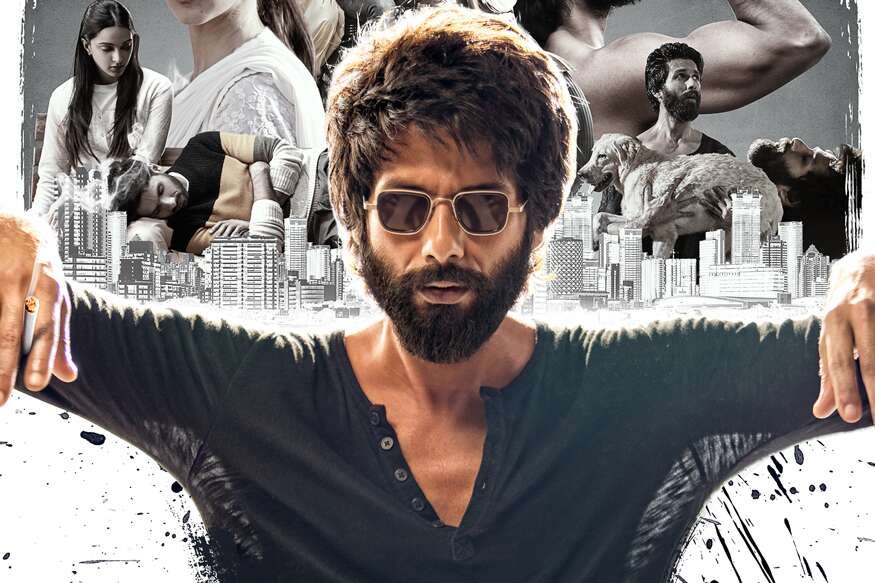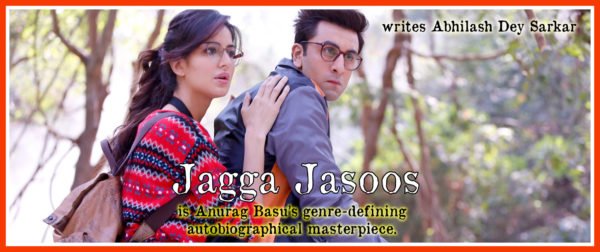Dil Dhadakne Do (Let the Heart Beat) is a family drama with romance and comic elements ingrained into the fabric of the plot. Directed by Zoya Akhtar and Ritesh Sidhwani and Farhan Akhtar the film centres around the problems of a rich aristocratic yet dysfunctional Punjabi family. The film features an ensemble cast of Anil Kapoor, Shefali Shah, Priyanka Chopra, Ranveer Singh, and Anushka Sharma. While Zoya Akhtar’s last film Zindegi na Milegi Dobara(ZNMD) was about a bachelor trip to Spain, DDD revolves around the experiences of a couple who invite their family and friends on a cruise trip to celebrate their 30th wedding anniversary. Brother Farhan Akhtar appears in a special appearance insister Zoya’s film which essentially explores the subtleties and nuances of human relationships in various ways. Aamir Khan narrates the story and it is his voice as Pluto Mehra that takes us along from the outset of the movie making us see the life of the Mehras of Delhi inside out. Conditioned by conventional customs and tradition, patriarchal bias and conservatism, the Mehras live in their own egoistic world giving little space to personal freedom and choice. The aristocrat boss indulging himself in golf scotch, parties and superficial courtesies, enjoying his ‘self-made’ status, exercise, healthy diet, and caught in stressful anxiety to preserve the status is a stereotype in real life corporate world and the character has been explored to perfection in Hindi cinema several times before. Despite being the so called educated, sophisticated refined people the Mehra family is merely obsessed with status, superficialities and driven by the concern of ‘what people will say’ behind every decision that they undertake. They are educated yet have no qualms about discriminating between their girl child and a boy. They choose they delete their daughter’s name from their invitation card just because of her marital status. They insist and advise their girl to stay into marriage even if her life is miserable and unbearable.
The parents are willing to project their son as the future CEO of their company despite knowing that he isn’t fit for the job and in that process they completely refuse their daughter’s business acumen and achievements. The mother even advises her distressed daughter to give up her job and have a child and focus her interest in the family instead of work. The film raises some serious social concerns but fails to deliver the punch. The flawed family, with their inherent gender bias, superficial moralities point out to the essential maladies of aristocratic life which has its own set of problems and difficulties. The film’s best moments revolve around the sister brother relationship between Ayesha and Kabir, beside the eye catching scenic beauty of Turkey, Greece and the Mediterranean cruise which the film has to offer.
Anil Kapoor is brilliant as the flamboyant aristocratic father who wishes his son to marry his rival’s daughter to save his sinking business, a man who loves to gloat over his wealth and status and employs his brother as the manager in his private limited treating him no better than a servant. He has no sense of morality when he lies on his face about how he never keeps his lady waiting or when he bargains with his son about a plane or when he forces his daughter to continue her failed marriage despite everything. He asks her daughter what can be ailing her if she and her husband ‘are both young, successful Punjabis who play squash with each other?’ It is as if women cannot decide to leave their respective partners even if they were stifled to death in their marriage. Manav’s mother goes on to ask her daughter in law what can be the reason behind Ayesha’s decision to divorce if her husband never abused her, permitted her to work and allowed her go for shopping at her will. These ridiculous questions bring out how society essentially lacks humanity and sympathy for women and even if they are successful and rich the ‘divorce’ is a stigma that sticks as a label on to a woman for life. The film explores the ugliness beneath the veneer of gloss and pretensions of aristocracy and how life is not all so pleasant behind closed doors. Shefali Chaya excels as the insecure desperate upper class wife who looks happy and content from outside but tries to hide her depression by stuffing herself in frustration and loneliness. Priyanka Chopra is brilliant as Ayesha the successful business woman who gets featured in Forbes and Ranvir Singh as the pampered son with a passion for flying planes stands out with his comic sense. Rahul Bose is miscast as Priyanka’s chauvinist husband. Anushka Sharma’s part as Farha the dancer is underwritten and could have explored further beyond the depiction of their intimacies on board, and in the dance number “Girls Like to Swing” it is Priyanka who steals the spotlight from her. Farhan Akhtar as journalist Sunny has little to do in the film.
DDD is a little too lengthy and could have been better with little more editing. Amir Khan’s voice over becomes boring after a point of time. The film leaves us with a sense of something amiss despite having every impeccable ingredient for success. There are few moments in the film which leave a mark although the over-all impact is that of a dish not well cooked. The film DDD makes use of the journey motif like ZNMD and shows how the trip changes the traveler’s perspective towards life forever as Ranvir echoes the words of her little cousin, ‘this is Istanbul “Yaha Kuch bhi Ho Sakta Hai”.
The ending of the film is another big let-down. The build-up takes too long and the film ends in a sudden melodramatic collapse. Zoya Akhtar and Reema Kagti’s story deals with the rich, mighty, pretentious and pompous elite of the Delhi society and shows that there is nothing called a perfect family in real life.
‘All happy families are alike; each unhappy family is unhappy in its own way.”
― Leo Tolstoy, Anna Karenina


